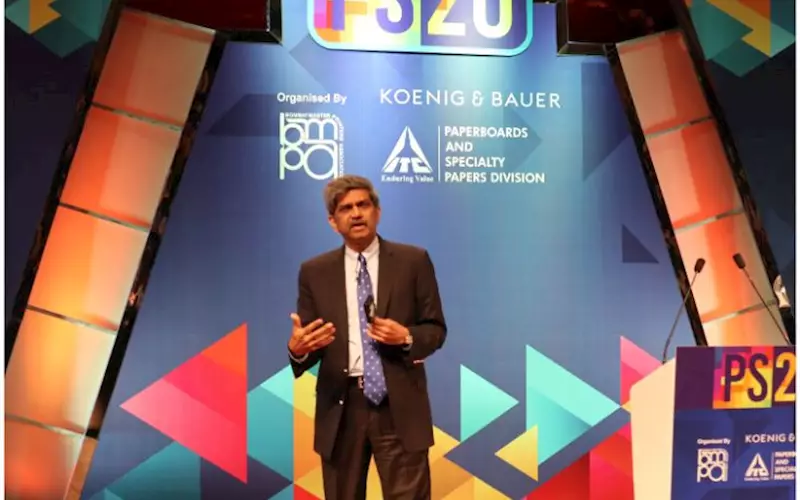Print Summit 2020: Build an ecosystem to be successful, says D Shivakumar
The key to success of MSMEs in the future is working with the ecosystem of large companies. “You have to work with large companies in order to be successful,” said D Shivakumar, group executive president at Aditya Birla Group, while delivering his keynote on the topic, ‘Business in the next decade’ during Print Summit 2020 on 23 January.
23 Jan 2020 | By Noel D'Cunha
According to Shivakumar, you cannot work on your own to be successful. You have to form a partnership with large companies. “This is exactly what happens in Germany. It’s an ecosystem. There are thousands of MSMEs but they work with large companies. I urge you to work with large companies who have resources. All you need is to have ideas and the speed to deliver.”
During his keynote, Shivakumar, popularly known as Shiva in the business circles, shared his six thoughts on what to look out for in the next decade. These were: India, digital, media consumption, millennials, trade and MSMEs.
On India and what it does, Shivakumar said, India is unique. India has been different and will never follow models of another country’s development.
Sharing the BRICS example, Shivakumar said, “In the last 18 years, India’s economic development has been very different from Brazil, who are in deep trouble; very different from Russia, moderate trouble, different from China and no comparison with South Africa.”
He said India’s advantage is its unique demography, the number of young people, a unique higher education system, which puts it in a very unique position to grow.
India’s source of pride is its nationalism. “People are proud about the GDP and rank in the world, its business leaders, local innovations, India for India, and world class companies, and its political leaders too,” Shiva said.
During his presentation, Shiva shared an interesting piece of data, where he envisages incremental spend between 2018 and 2030. Particularly important from the print and packaging view point was the percentage of people who will be spending more on premium products. For example, people would be spending 25% of their incomes on premium food at home, 59% on personal care.
“It has a huge implication on the packaging industry. If you look at packaging of today compared to when I was a brand manager 15 years ago, it's chalk and cheese. Premiumisation of packaging is fundamental to consumers. You cannot have the same old packaging for superior products,” he said.
One of the factors which will drive growth, according to Shivakumar, is that millennials, are saving only 10% of their income. They will continue to earn more and spend more.
One of the challenges of the MSMEs, Shivakumar pointed out, was credit needs of the sector. “The total debt of MSMEs is at Rs 69.3-trillion, out of which Rs 58.4-trillion, which is a big sum, is coming from friends or family money,” he said, adding “I think the government needs to do more here. Therefore, this is the point you should be making, and talking about how you get more funding to grow your business and the business of MSMEs.”
Shivakumar ended his keynote address with an advice. He said technology is not a problem, software is not a problem, and capability is not a problem. “In fact, you are uniquely placed to collaborate with large companies and form an ecosystem, where you could help them to be innovative, fast and responsive to the market changes,” he concluded.











 See All
See All